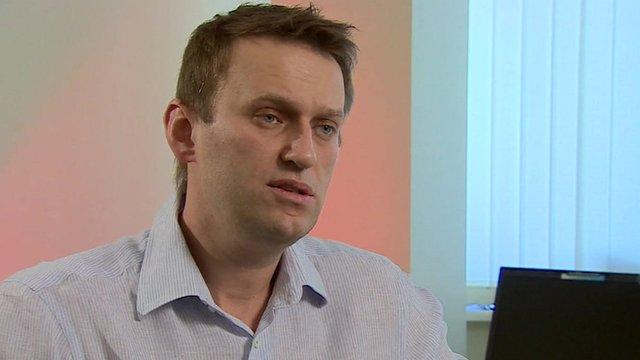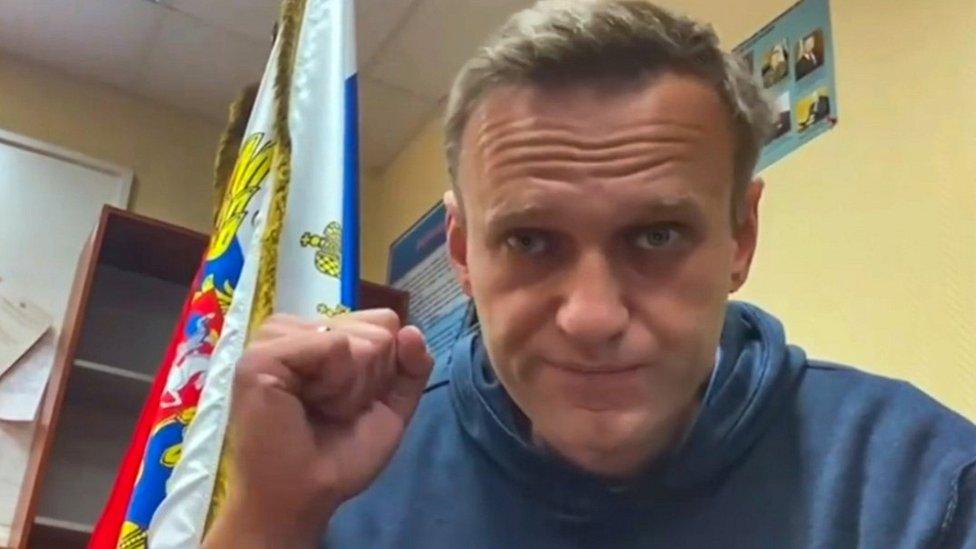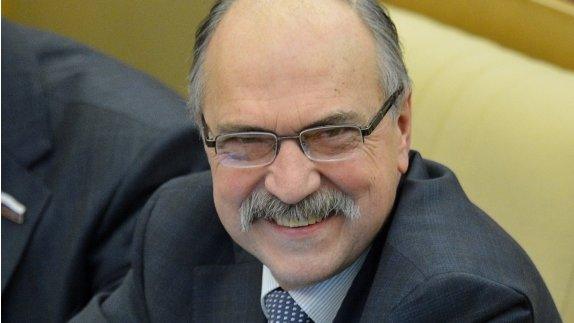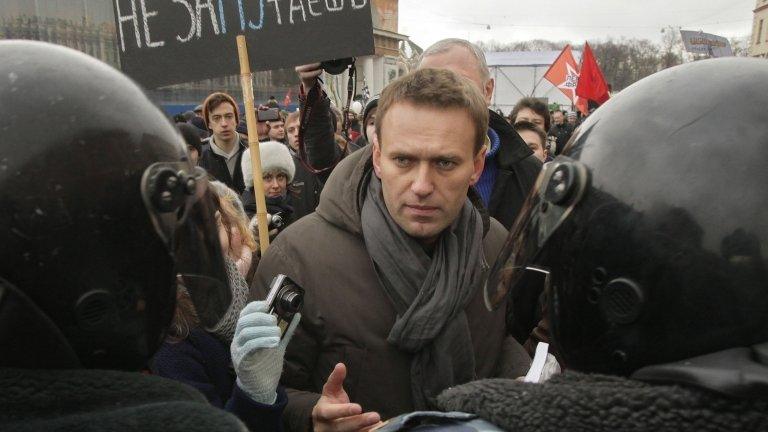Russian activist Alexei Navalny denounces his trial
- Published
Alexei Navalny's legal team is challenging every detail of the trial
Leading Russian opposition figure Alexei Navalny, who is on trial for embezzlement, has called on the judge to throw out the case against him.
In his first defence statement, he said the case's primary purpose was "pushing me out of the legal political field".
He claimed it was ordered by President Vladimir Putin, whose United Russia party he has denounced as corrupt.
Mr Navalny is accused of involvement in the misappropriation of $500,000 (£300,000) from a state timber company.
The 36-year-old activist faces up to 10 years in prison if convicted.
'Politically motivated'
Addressing the court after pleading not guilty, Mr Navalny said the charges were revenge for his exposure of high-level corruption and were intended to prevent him from running for office.
"The most important reason for this case's existence... is pushing me out of the legal political field," he said. "This case is absolutely politically motivated and fabricated.
"It is political revenge for the activities of me and my supporters. In particular our campaign to vote for any party but United Russia. It is revenge for that campaign, and the next one, aimed at preventing the election of President Putin, who seized power illegally."
Mr Navalny's trial in the city of Kirov, about 900km (560 miles) north-east of Moscow, began a week ago but was quickly adjourned after his lawyers said they needed more time to read the case files.
The trial resumed on Wednesday but was twice adjourned as Judge Sergei Blinov withdrew to consider requests by the defence to send the case back to prosecutors, citing a lack of specifics and inconsistencies.
Mr Navalny's lawyer, Olga Mikhailova, also argued that the judge should recuse himself, saying that in just two days of the trial he had already "sided with the prosecutors and in fact acted as a 'defence lawyer' for the prosecutors, who had failed to conduct a proper investigation and shape up the indictment".
However, the judge dismissed the motion, stating: "The claims by the defence that this court is limiting their rights are unfounded."
Also on trial is Pyotr Ofitserov, who ran the timber company which Mr Navalny advised while working for the governor of the Kirov region in 2009. Prosecutors alleged in March that the two defendants had also defrauded the firm.
Aside from the embezzlement charges, three other criminal cases have been opened against Mr Navalny.
Last Thursday, the federal Investigative Committee announced, external that he and his brother were suspected of organising a 3.8m-rouble (£79,000; $121,000) fraud involving mail deliveries in 2008.
A spokeswoman for the activist said the latest allegations were the authorities' "reaction to the massive public support that we're receiving".
'Crackdown'
Mr Navalny is the most high-profile opposition figure to be tried since anti-Putin protests 16 months ago, which saw the biggest demonstrations in Moscow since the fall of the USSR.
Since Mr Putin's re-election in March 2011, legal action against opposition figures has increased markedly. Tough laws have been passed on public order offences and tight curbs placed on non-governmental organisations.
Analysts say Mr Navalny's conviction would be a major blow to an opposition which for years suffered the lack of a central figure or platform.
Two leading human rights organisations published reports on Wednesday condemning President Putin's clampdown on democratic freedoms - a year into his third term.
The separate reports by Human Rights Watch and Amnesty International, external express concern over a "witch hunt" against political activists and NGOs.
Amnesty spokesman John Dalhuisen warned: "Civil society risks being suffocated and isolated not behind an iron curtain, but a legal one."
Mr Navalny's case is highlighted by yHuman Rights Watch, external, which warns that Russia is violating its international human rights commitments.
"Russia's international partners should leave no doubt about the seriousness with which they view the crackdown under way in Russia, and impress upon Moscow the urgent need to stop abuses," said Hugh Williamson, HRW's Europe and Central Asia director.
- Published17 April 2013

- Published16 February 2024

- Published20 February 2013

- Published24 December 2012

- Published25 March 2024
